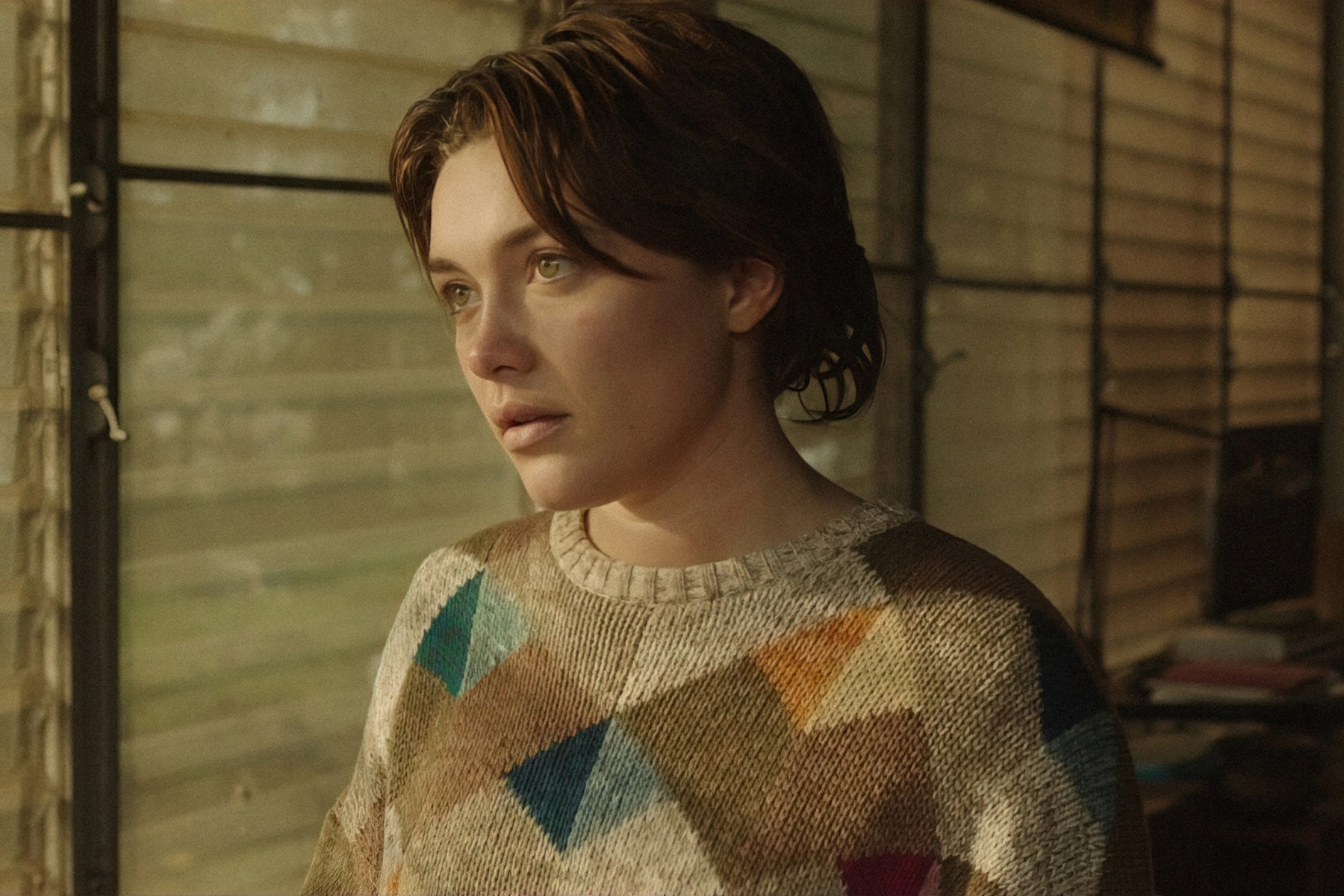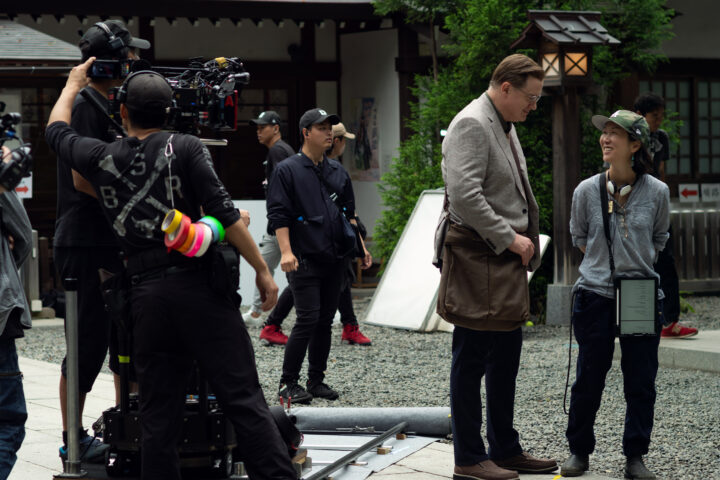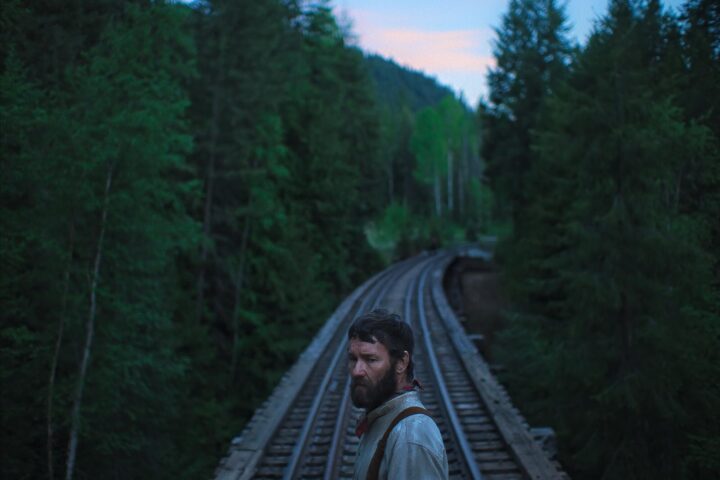As a document of a successful artistic union between director and muse, Zach Braff’s A Good Person is an ode to a luminous movie star who has clearly fascinated the talented writer-director, and one who fascinates us. That star is the estimable Florence Pugh—a hot commodity in movies like Don’t Worry Darling, Midsommar, Black Widow and Little Women, for which she was Oscar-nominated—whose wattage has never shone brighter than in Braff’s new film.
In A Good Person, their raw new drama about loss, addiction and friendship, Pugh’s considerable life force, filmed in close-up, is one-half of a compelling movie about an unorthodox friendship. The other half is an all-time performance from Morgan Freeman, handed his best role in ages.
Pugh plays South Orange New Jersey bride-to-be Allison, who when the film opens is madly in love with dream fiancé Nathan (Chinaza Uche). A voluptuous vision of contentment, we first meet her playing the piano (the star wrote and performs several songs) at what appears to be a warmly celebratory engagement party. But bliss is quickly shattered by a Manhattan bound highway collision leaving Nathan’s sister and brother-in-law dead.
Up to this point everything has been pre-credits prologue, Braff then shuttling a year forward to a radically changed Allison, no longer engaged, back at home with her concerned yet ill-equipped mother (a welcome Molly Shannon) and lost in a haze of oxycontin. She spends her on the sofa, self-medicating and in denial about her obvious addiction to painkillers. When the pills begin to dwindle, she harasses the local pharmacist and haunts local watering holes in search of a fix. Pugh, peering into both the camera and the heart of darkness, is a thorny revelation, often appearing with little makeup, trembling on the verge of distress. A key moment set in a bar opposite a smart Alex Wolff, playing a former classmate, leads to a pungent self-assessment.
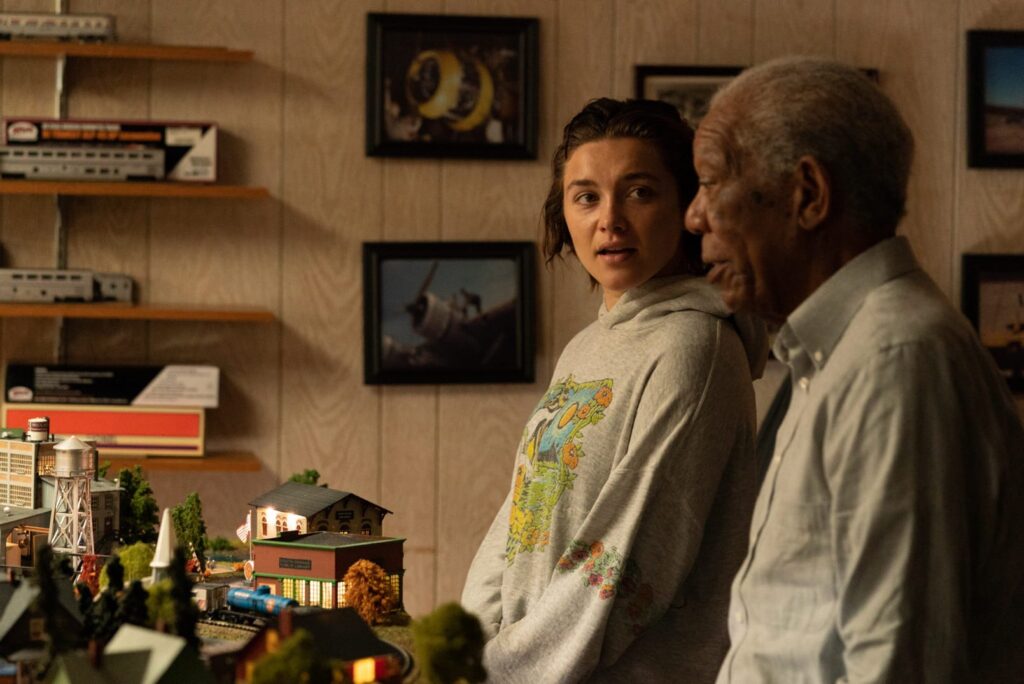
A few towns over, aged Daniel (Freeman) is raising troubled teen granddaughter Ryan (Celeste O’Connor), whose parents were killed in the crash. Ryan, going nowhere fast, has anger issues and is bullied by her soccer teammates. An octogenarian ex-cop struggling to stay on the wagon, Daniel is nursing his own deep-seated problems.
A chance AA encounter between these two damaged souls forges a tentative and surprising connection. They are not strangers, both have been shattered by Allison’s crash. For Daniel, their growing friendship means suppressing his pain over the loss of his daughter given that Allison is the architect of his grief, and someone in whom he measuredly confides a family legacy of booze and abuse. In one of the film’s loveliest touches, he introduces his new friend to his elaborate model train, offering a poignant observation on its representation of a kinder, more forgiving model of life than the harsh reality of its real world counterpart. But can two such damaged people somehow heal each other?
Braff’s multilayered screenplay for this 129-minute character-centric drama takes care to provide his ensemble plenty of time and latitude for exploration. As Allison and Daniel become larger parts of each other’s lives, Ryan become integral to Allison’s healing. Allison, in turn, helps Daniel understand his wayward granddaughter.
If this description sounds pat I recommend leaving such cynicism at the multiplex door in fairness to this perceptive and emotional picture, which eschews melodrama in favor of substantial drama and pulls no punches about addiction struggles and and the Herculean process of recovery, teetering just on the edge of relapse, always waiting to be being triggered.
This push-pull dynamic yields a dozen or more affecting actors’ moments, including a frank scene set in a diner where Daniel corners Allison on whether she is under the influence; another where Daniel, Allison and Ryan hash out their feelings after an unexpected run-in; and a surprise meeting in a Manhattan nightclub that proves too heavy a burden for Allison to bear. In one finely acted late sequence set outside a drug-fueled Williamsburg party, Freeman has a monologue of such force (“I know God isn’t fair but I never thought he could be so cruel”) and delivered with such authority that we, like Pugh, are taken aback.
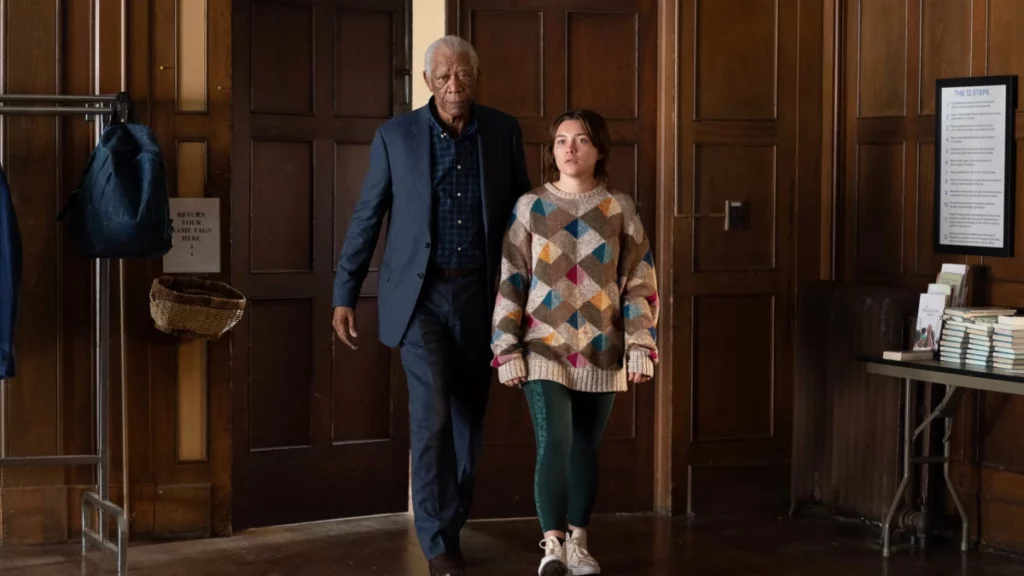
Braff also has taken remarkable care with his well-rendered supporting characters, including O’Connor’s Ryan, who matures and grows across the film’s passage of time, a guarded yet sensitive youth with an idealistic need to fix the person who has caused her such immense pain. Shannon is also effective as the mother who doesn’t know how to best help, as is Zoe Lister-Jones as an AA sponsor warning that she won’t accept any disingenuousness. And Chinaza Uche excels as Freeman’s broken adult son, an abuse survivor and Allison’s former fiancee, providing a poignant late moment where a long-buried truth is acknowledged.
Pugh is perfection in her drastically imperfect anti-heroine clawing her way back to life. With the right dramatic pictures and directors, she will easily vault to the top of her contemporaries (and perhaps she already has) as a major movie star. And a weary Freeman, with his signature mellifluous voice and natural gravitas, creates a scarred man of faith and principle in a tug-of-war between his values, heart and the bottle. Both actors offer believable, frequently intense portraits of grief and shelter, showing up for each other in a perfect onscreen pairing. At times A Good Person reminded me of pictures like Lawrence Kasdan’s Grand Canyon, where people thrust together under trying circumstances try their best to simply take care of each other.
3 1/2 stars
